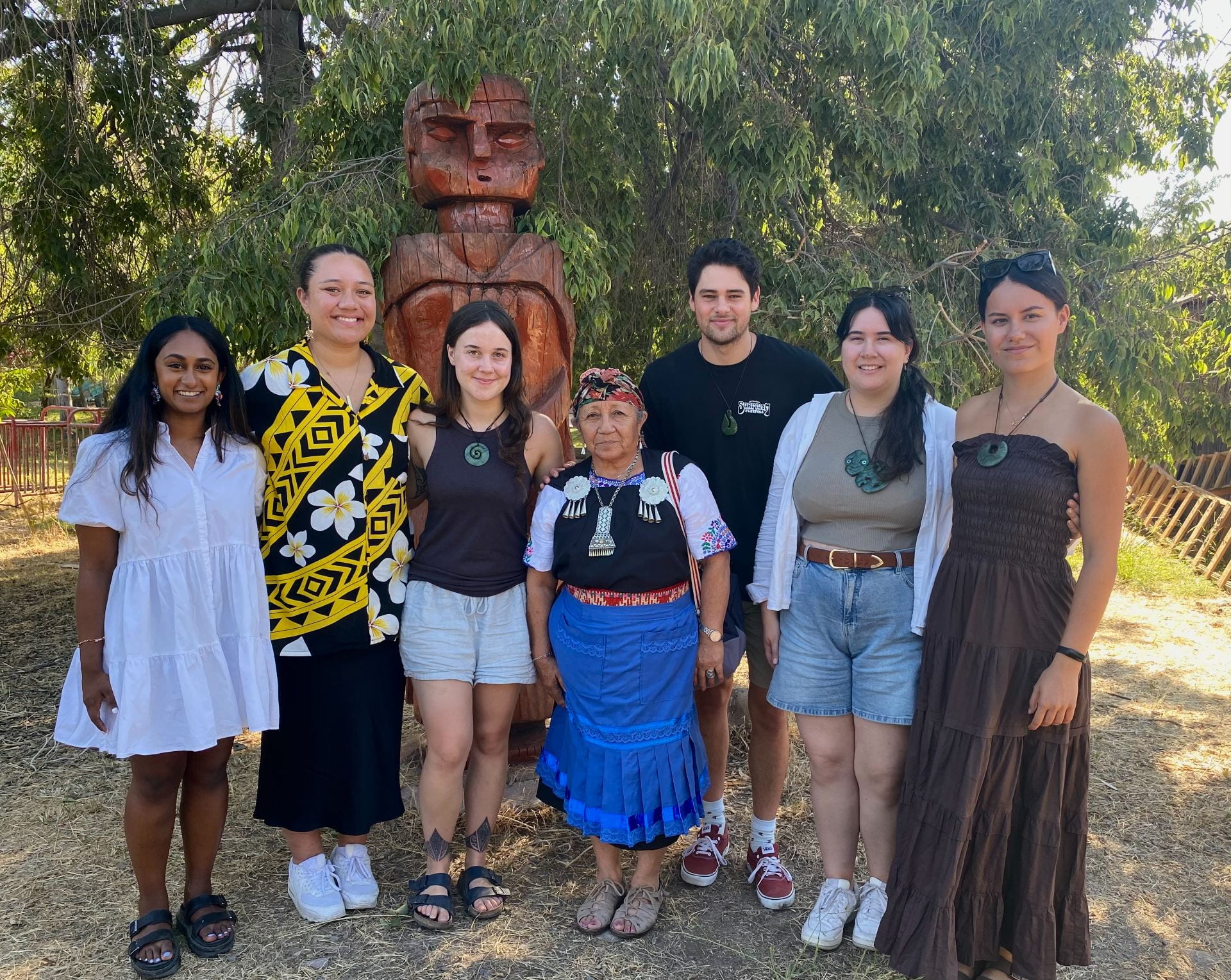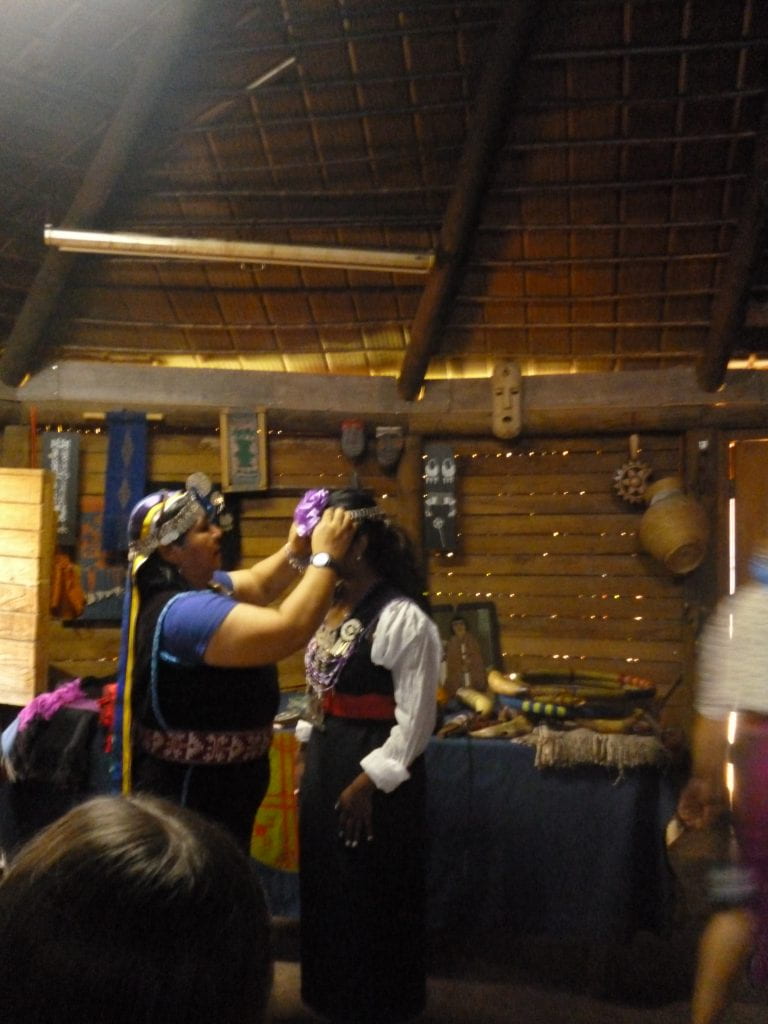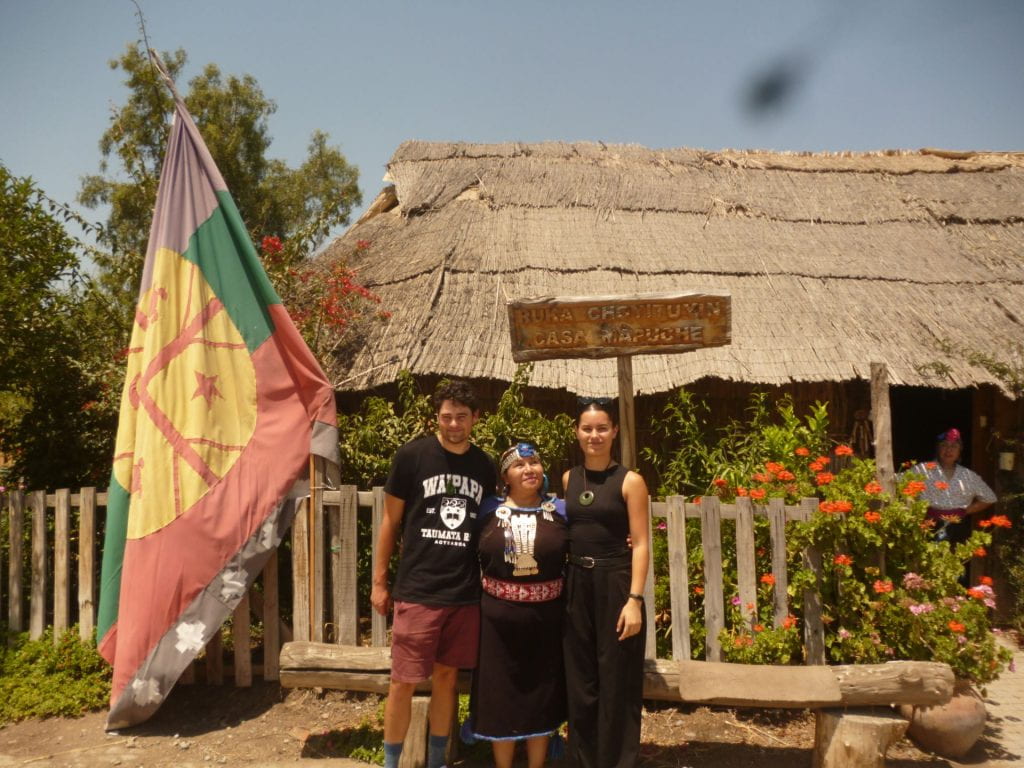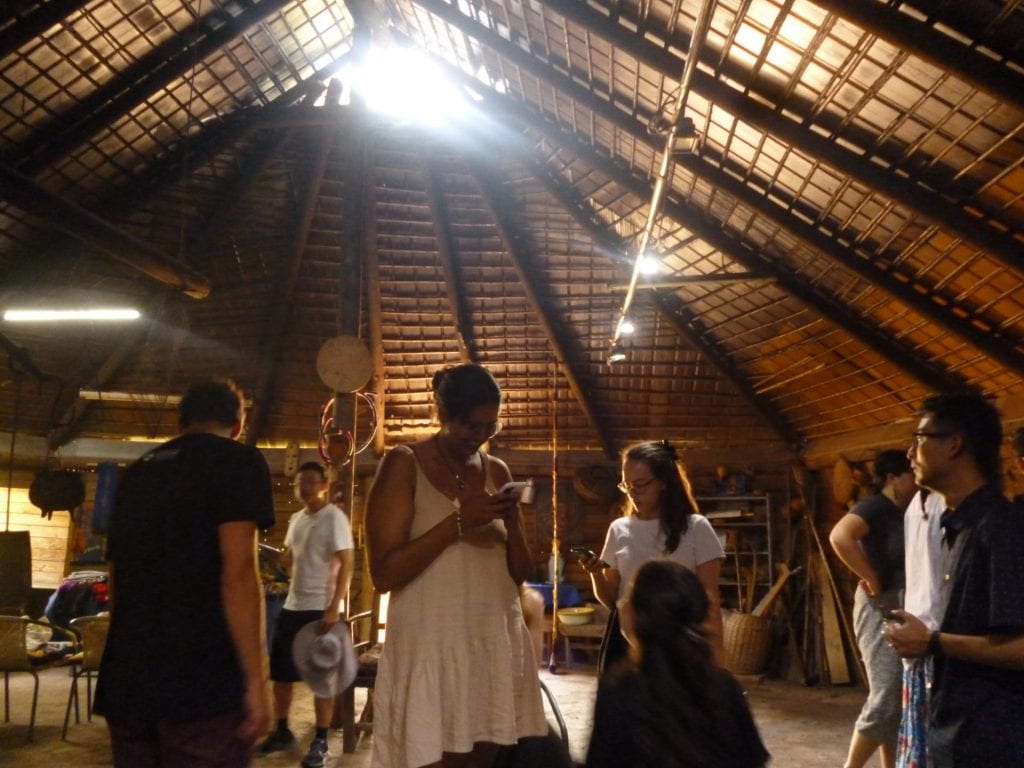
It’s been a long week. Maybe the longest so far, but all for good reasons.
As I try to make sense of the abundance of experiences, emotions, and relationalities that have been held within this week, the theme of negotiation is woven into many of them.
The week started with lectures on Mapuche and Aymara histories and worldviews – the two largest indigenous populations in Chile, though there are eleven distinct indigenous groups in total. One group, the Selk’nam people, was only officially recognised by the Chilean government on the 5th of September, 2023. We learnt about some of the complexities of being recognised as indigenous, such as the process of registering through CONADI, which only formally acknowledges people as indigenous up to three generations. These classes were really eye-opening and interesting – of course, it was difficult to hear because there is so much mamae (pain, hurt) among their indigenous communities surrounding colonial histories, intergenerational trauma, and ongoing injustices… but equally, it was moving, for we share many similarities in terms of holistic worldviews, intrinsic connections with te taiao and te moana, and deep philosophies surrounding our place on this earth, and the universe. One line I found particularly poignant was shared by a Mapuche lawentuchefe (traditional healer who works with plants and herbal medicines), who said that we (humans) are ‘like the wind and shadows; we come and go’. It speaks to the importance of protecting the earth we live on, and the land we stand atop, not just for our sake, but for everything and everyone that will come after we have left. It reminded me of kaitiakitanga, and the notion that we are of this earth, which makes it our obligation to protect it.
These lessons were further enriched by talking to our friend, Sebastian, about being indigenous, and cultural disconnection and reconnection. Our kōrero explored the difficulties with reconnecting to land and culture in urban contexts which remove us from our ties to ancestral lands, and familial communities. Sebastian expressed the urge to reconnect with land, with language, and to return to the land he comes from, all of which resonated deeply with Tai and I. It made me reflect on what it means to be indigenous, especially in spaces and contexts which don’t necessarily make it permissible or easy. Throughout the rest of the week, these negotiations between identity, indigeneity, and political realities were at the forefront of my mind.
On Thursday, we paid a visit to a Mapuche Ruka, where we had the privilege of learning more about Mapuche healing practices, customs and the significance and meaning behind their clothing, jewellery, instruments, and music. Here, I was really struck by the negotiation of space. Santiago is a massive city, where indigeneity is rendered relatively invisible aside from the odd Mapuche flag plastered like an afterthought onto a cheap touristic fanny pack. Yet, despite being located in the middle of a neighbourhood, opposite a car repairs shop and across from a busy intersection, entering this space felt like all of that noise simply dissipated away. Inside the Ruka, warm golden light filtered through the entrances and the roof, and birdsong echoed through the space. You could hear the hum of voices, the clink of dishes from the kitchen, and you could feel the cool air offered as a result of the building’s design – a stark contrast to the often inescapable (and unbearable) heat of Santiago. To be able to create such a peaceful space within an otherwise chaotic city felt to me like just one example of countless others of the negotiations that arise between indigeneity and the contexts we are placed in, and the beauty that arises, regardless, out of whatever circumstances we are given.
On Friday, we had the honour of visiting another Ruka in La Pintana, this time made possible through the New Zealand Embassy. This visit was charged with emotion and reflection – we spent hours together, hearing from the people leading the health initiatives, and the ways that context, identity, and resources have been negotiated so as to leverage the health and wellbeing of people living in La Pintana, particularly their indigenous population. One of the core things it highlighted to me was our role as Māori in Aotearoa, as the tuakana (older sibling, guide) of other indigenous populations. Something we have been told multiple times throughout this trip is that many different indigenous groups, such as Mapuche, look to Māori for inspiration, and that there is deep admiration there. There is a whakataukī which goes ‘waiho i te toipoto, kaua i te toiroa’ – let us keep close together, not far apart. It speaks to the importance of community, of maintaining dialogue, and bringing people together – in this case, drawing together to wānanga despite the many kilometres that separate us from each other. In this session, indeed, throughout this entire week, I feel as though my eyes and heart have been opened to the importance of such things, and of coming together as indigenous people to wānanga, to tautoko each other, and to collectively resist and rise above the shared challenges that we face which stem from histories of colonisation and oppression. At the end of Friday’s hui, Mapuche elder Juanita closed by passionately stating that although it might sound like Mapuche have lost a lot of their culture and language, they are fighting, and they will keep fighting. To that, Shannon shared the famous words of Rewi Maniapoto at the battle of Ōrākau – ‘‘ka whawhai tonu mātou, āke, āke, āke!” – we will fight on, forever and ever and ever. These words echo in my mind as I write, and as we continue to move through these spaces, and engage in these dialogues. Despite everything, mana motuhake continues to be fought for, and indigeneity in all its expressions is held onto; steadfast, precious and enduring.
Me te aroha nui,
Saffron


